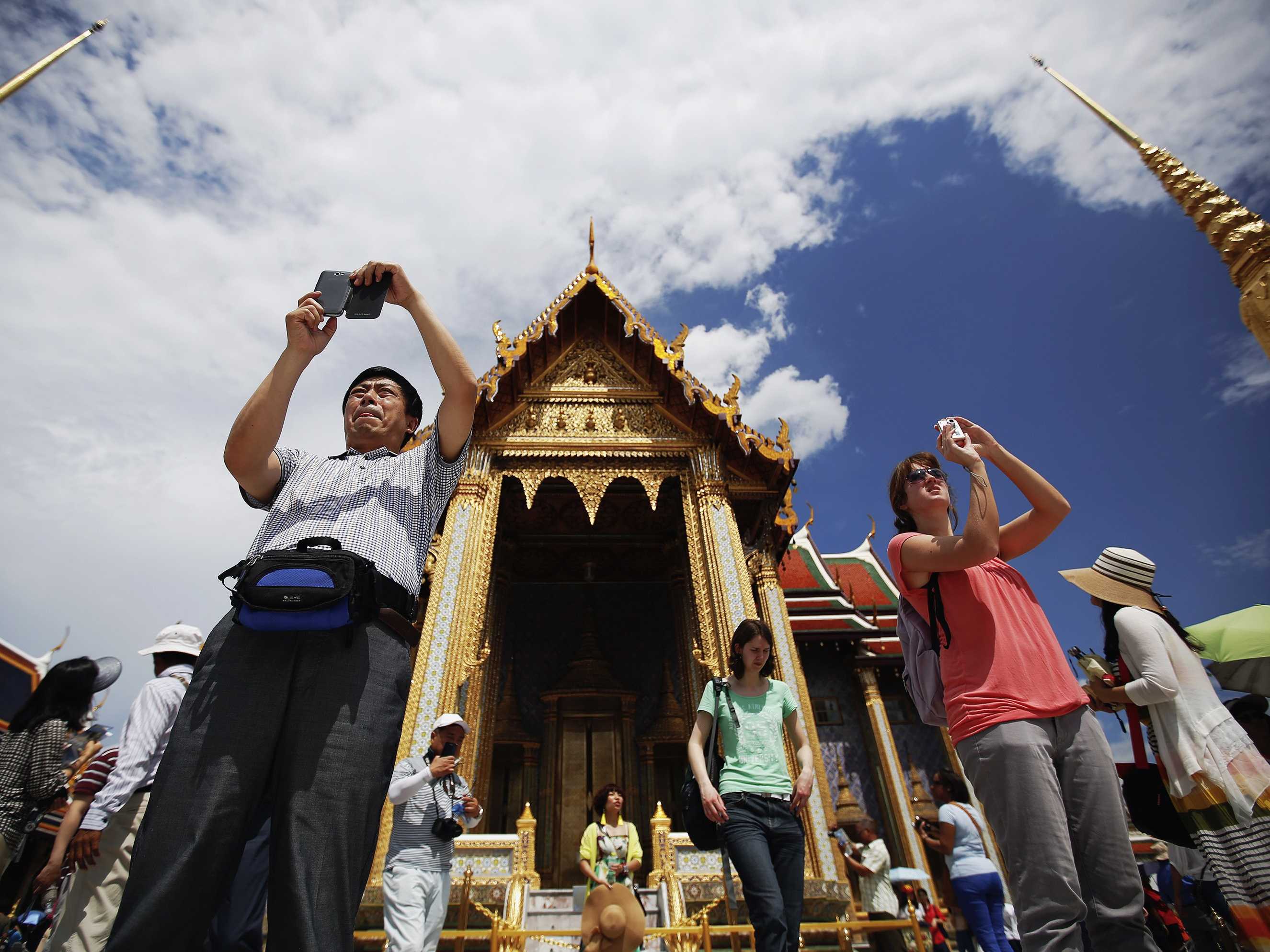Anthropology of tourism forging new ground

Anthropology of tourism, which is witnessing increased interest in the tourism industry, focuses on investigating the impact of tourism on tourists and on travel destinations.
Tourism is closely entwined with the lives of ordinary people and significantly affects social development in many ways. The tourism industry serves as an important contributor to the global economy and has caused both conflicts and exchanges between different cultures. These incidents have drawn attention from anthropologists. Research on the cultural and social changes affecting tourist destinations is being deepened, with researchers looking at the kinds of tourists involved and the reasons for these kinds of tourism, as well as the motivations and manners of tourists. Thus, anthropology of tourism is taking shape as a new branch of the discipline.
Cultural changes
Anthropology of tourism focuses on two key aspects: the impact of tourism on tourists and the effect on travel destinations. Peng Zhaorong, dean of the Institute of Anthropology at Xiamen University, said that the field largely focuses on investigating the impact of tourism on travel destinations, such as the effects on the natural environment, social structure, traditional values and ethnic identity of locals.
The area of study also looks at interactions between different cultures. Peng points out that it is influenced by many political, economic, ecological and cultural factors, and that tourism today is not confined to one certain model, or enjoyed by just one social class. Tourism instead reflects many forms of discourse and cultural elements of the modern world.
With the development of the tourism industry, questions such as “Are changes in cultural connotations a good thing?”; “Is it bad to commercialize tourism?” and “Will tourism development degrade traditional culture?” need to be answered. Zhang Xiaoping, a professor from Yunnan University, argued that we cannot answer these questions with a simple Yes or No, for they involve complicated issues, such as cultural identity, integration, economic integration, cultural diversity, authenticity of culture and its reconstruction, and the production and protection of culture.
Research methods
Anthropology of tourism mainly adopts anthropological methods but does not indiscriminately adopt all the paradigms of anthropology. For example, the traditional ethnographic research paradigm requires fieldwork in sample communities for at least a year, which cannot be applied in the context of anthropology of tourism.
Even when specifically studying tourism destinations, investigations are not limited to their culture, social mechanisms or ethnic identity. It is also necessary to study the tourists that travel to the destination from different nations or social classes. These tourists may stay there for a short period, but they still require appropriate observation and investigation.
Peng suggested that anthropologists have to take into account the conditions experienced by tourists at their point of origin, the events that occur after their trip, what they said there, what they collect at the destination, and how much money they spend. This indicates that anthropology of tourism needs to reform its research paradigm.
Constructing the discipline
The rapidly expanding tourism industry and years of disciplinary development provide vast areas of research for anthropology of tourism in China. Remarkable progress has been made in two respects: Many research findings in the West have been translated and introduced into China while anthropological research methods have been applied to studying social changes brought about by the tourism industry.
However, drastic social changes, economic globalization and frequent interactions among different nations make these social groups, communities and their cultures hard to truly understand. Sun Jiuxia, vice-president of the School of Tourism Management at Sun Yat-Sen University, has indicated that related areas of research are undeveloped. She said: “Much emphasis has been placed on the destination society while investigation into the tourists’ home society is neglected. Also, there is abundant research on the impacts of tourism, whereas the essence and characteristics of tourism, tourist experiences, interactions between subjects and objects in tourism, and research methods of anthropology of tourism have significant potential for further research.”
Ming Haiying is a reporter at the Chinese Social Sciences Today.
